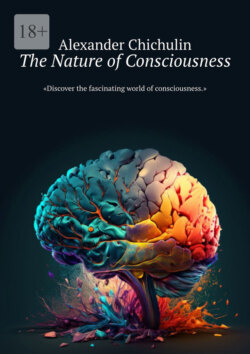The Nature of Consciousness

Реклама. ООО «ЛитРес», ИНН: 7719571260.
Оглавление
Группа авторов. The Nature of Consciousness
1. Introduction
– Defining consciousness
– Historical perspectives on consciousness
2. Theories of Consciousness
– Dualism
– Materialism
– Idealism
– Panpsychism
– Emergentism
3. The Hard Problem of Consciousness
– What is the hard problem?
– Arguments for and against the existence of the hard problem
– Different solutions proposed to address the hard problem
4. Consciousness and the Brain
– The neural correlates of consciousness
– Different brain regions and their role in consciousness
– Neural mechanisms of perception, attention, and awareness
5. Altered States of Consciousness
– Sleep and dreaming
– Meditation and mindfulness
– Altered states induced by drugs or other means
6. Consciousness and Philosophy
– Ethics and free will
– Consciousness and the self
– Consciousness and the meaning of life
7. Consciousness and Science
– Scientific methods for studying consciousness
– The limits of scientific inquiry into consciousness
– Consciousness and the search for extraterrestrial intelligence
8. Conclusion
– Summarizing the key points
– Future directions for research on consciousness
Отрывок из книги
Defining consciousness is a complex and ongoing philosophical and scientific endeavor. However, in general, consciousness refers to subjective experience or awareness, including perception, thought, feeling, and volition. It is the state of being aware of and able to think and perceive one’s surroundings, thoughts, and emotions. Consciousness is often described as the «stream of consciousness,» which encompasses all of our experiences, thoughts, and sensations at any given moment. It is a multi-dimensional and multifaceted concept that has been the subject of intense study and debate in various fields, including philosophy, psychology, neuroscience, and cognitive science.
The study of consciousness has a rich and complex history that dates back to ancient civilizations, where philosophers and religious leaders pondered the nature of subjective experience. Some of the significant historical perspectives on consciousness include:
.....
One of the main arguments for materialism is the idea of neural correlation. Studies have shown that changes in brain activity correlate with changes in conscious experience. For example, when a person sees a red apple, there is a corresponding pattern of neural activity in the visual cortex. When the person stops seeing the apple, the pattern of neural activity disappears. This suggests that consciousness is closely tied to the physical processes in the brain.
However, materialism has been criticized for failing to explain certain aspects of consciousness, such as the subjective qualities of experience. Some philosophers argue that subjective experience cannot be reduced to physical processes and that there is a «hard problem» of consciousness that cannot be explained by materialism alone.
.....